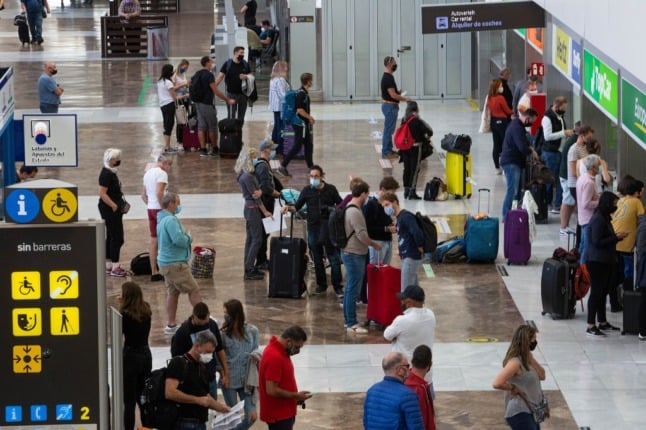“From June 7th, all vaccinated people and their families will be welcome in our country, Spain, regardless of their country of origin,” Sanchez said at an international tourism fair in Madrid.
He also announced that British travellers would be allowed to visit Spain for holidays from next week.
“From next Monday, the 24th of May, Spain will be delighted to receive British tourists again into our country,” Sanchez said.
He said they will be allowed in “without restriction”, but he did not specify whether they would have to show a negative Covid test.
Britain has long been the biggest source of tourists for Spain, and until now British travellers have only been allowed into Spain for visits deemed essential.
But for the time being, Britain has upheld restrictions on travellers from Spain, who have to quarantine on arrival, as well as showing a negative Covid test.
READ MORE: Spain to welcome British tourists without PCRs or quarantine from Monday May 24th
The world’s second most popular destination after France, Spain registered 83.5 million foreign visitors in 2019, official figures show.
In 2020, the number of foreign tourists visiting Spain collapsed by 77 percent compared with a year earlier, falling below 19 million visitors as
pandemic restrictions put the brakes on leisure travel.
It expects to welcome around 45 million foreign tourists in 2021, just over half the number who came in 2019 before the pandemic struck, the tourism minister said this month.
Sánchez was speaking at the FITUR International Tourism Fair, which saw some 50,000 people gather this week for the first in-person meeting of its kind since the pandemic hit.
The fair was taking place as Europe and many other countries are coming out of lockdowns imposed because of the pandemic and as people across the globe are gearing up to travel again.
Tourism was one of the sectors hardest hit by the pandemic.
According to the United Nations World Tourism Organization (UNWTO), tourist arrivals are estimated to have fallen 74 percent in 2020 compared to 2019.



 Please whitelist us to continue reading.
Please whitelist us to continue reading.
Member comments